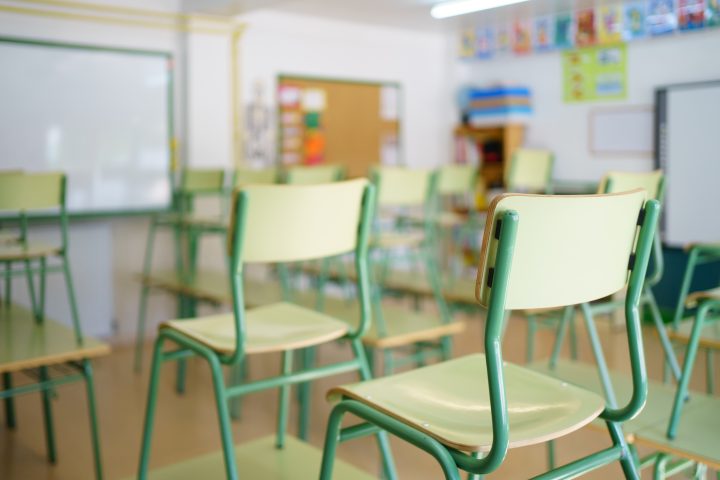The Saskatchewan Human Rights Commission is working to make sure “no child is left behind” after several families claim their children faced discrimination in schools due to disabilities like dyslexia.

A systemic investigation began when the commission received complaints from 29 families back in 2020.
Barry Wilcox, interim chief commissioner of the Saskatchewan Human Rights Commission said meaningful access to education is not a privilege, but a human right.

“Our goal is to collaborate with individuals and stakeholders to ensure that students with reading disabilities are provided fair and equitable access to education in Saskatchewan. This report is the first of many steps in that process,” Wilcox said.
The commission said it consulted with families, students, educators, medical professionals and community-based organizations.
“Reading plays a vital role in our children’s educational progress and has a lasting impact on their lives. This report, and the ensuing systemic initiative, provides an opportunity to make significant changes in our province that will help build a better, more equitable future in which no child is left behind.”
The report said learning disabilities can show in different ways, whether it be reading, writing language, oral language and math.
According to the The Yale Centre for Dyslexia and Creativity, dyslexia shows up in about 20 per cent of the population and makes up about 80-90 per cent of of all those with learning disabilities.

The report said due to a lack of surveying and reporting the number of people in Canada with a reading disability could be much higher than reported.
In Saskatchewan, the Ministry of Education and many schools have moved away from the term “dyslexia”, using an umbrella term like “reading disability.”
But the report suggested that dyslexia is well-researched and that a more specific term can help clarify what kind of intervention is needed.
“After a diagnosis, an individual and their family can research and access the many resources available. They can also focus on what the diagnosis means, and how to move forward with what the child needs in order to learn,” read the report.
It pointed out that a difficulty or inability to read affects a child’s confidence, adding students with reading disabilities often underachieve in school and are more likely to drop out, less likely to go to post-secondary, and tend to take longer to finish a program they enroll in.
“Removing barriers for students with reading disabilities may also benefit students with other disabilities such as intellectual disabilities, developmental disabilities, hearing disabilities, vision disabilities, autism spectrum disorder (ASD), and ADHD who often struggle with reading for many of the same reasons as students with reading disabilities.”

The report suggested that providing more supports in education could have major, long-term benefits to millions of Canadians, highlighting research from the Canadian Association of Chiefs of Police that showed improving literacy as a tool to combat crime.
“People with childhood learning disabilities are over-represented among homeless youth and adults and
are also disproportionately involved with the criminal justice system and in correctional facilities.”
Saskatchewan’s Ministry of Education outlined targets for students back in 2020 to have 80 per cent of students meeting or exceeding the grade level in reading, writing and math.
The report noted that goal leaves about 36,000 students, or one in five students not meeting those goals.
Numbers reported for previous years were much lower, noting that only 66.8 per cent of students in Grade 1 met or exceeded that standard in 2019.
That number drops even further when looking at First Nations, Inuit or Metis children, where only 40 per cent of children in Grade 1 met or exceeded that goal.
Survey reports from the commissions report highlighted other issues, with families saying that having a child with reading disabilities can create extra costs and that navigating the education system could be quite difficult.

One parent even noted their battle to get support for their child was exacerbated by their own reading disability.
“It is a constant battle to get the necessary support, as a dyslexic myself navigating the information and internal self-doubt from my own time in the school system, was incredibly hard. There are so many barriers that families face when their child is diagnosed with a learning disability that impacts reading and writing and most of them are completely preventable,” read the testimony.
Issues with screening were also highlighted, with professionals pointing to problems with in-school screening created by a lack of resources, adding that many students are not being screened effectively or early enough.

A list of the most consistent themes while gathering the report was given:
- Negative impacts of reading disabilities on students and families, emotionally, socially and financially;
- Insufficient screening for reading disabilities;
- Complicated processes and systems for parents to navigate;
- Inadequate reading instruction and specialized intervention;
- Inconsistent accommodation;
- Long waits for professional assessment;
- Lack of teacher training and professional development regarding reading disabilities;
- Disproportionate reading outcomes for Indigenous students; and
- Lack of supports and limited resources.
A long list of recommendations was given regarding the next steps and a basis to create further dialogue.
Some of the recommendations included a universal screening strategy to find reading disabilities, a review and update of the provincial curriculum regarding achievement standards, inform families with children who have reading disabilities about options for intervention, and offer professional development for teachers to better teach and support students with reading disabilities.
Global News reached out to the Saskatchewan Ministry of Education and received a statement.
“The Ministry of Education is aware of the Saskatchewan Human Rights Commission’s report and will need more time to review to examine connections to work and initiatives already underway,” read the statement.
It also highlighted current budget funding, saying that money “provides for classroom supports to ensure that all students have equal access to, and benefit from, the provincial education program in an inclusive education setting.”




Comments